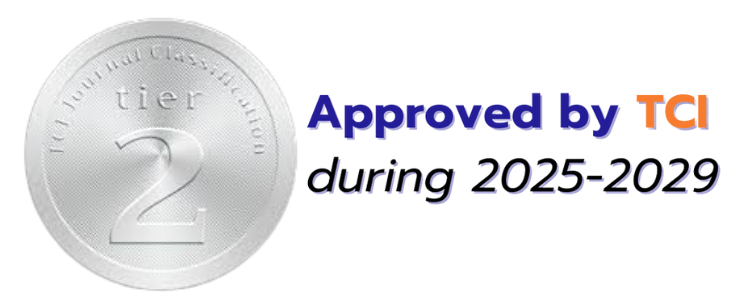การบริหารงานวิชาการเพื่อพัฒนาสมรรถนะนวัตกร
คำสำคัญ:
การบริหารงานวิชาการ, สมรรถนะนวัตกรบทคัดย่อ
การพัฒนานักนวัตกรเป็นผู้มีสิ่งที่เรียกว่า ความสามารถในการสร้างแนวคิดใหม่ทางธุรกิจ โดยพัฒนาความฉลาดทางความคิดสร้างสรรค์ ร่วมกับการใช้ประโยชน์จากทักษะการค้นพบ ซึ่งทั้งในประเทศไทยและต่างประเทศได้มีแนวคิดในการบริหารการศึกษาเพื่อพัฒนาเป็นโรงเรียนเชิงนวัตกรรมและกลยุทธ์การพัฒนาสมรรถนะความเป็นนวัตกรของครูสําหรับสถานศึกษาในศตวรรษที่ 21 การบริหารงานวิชาการอันเป็นการดำเนินงานที่ตอบสนองต่อการจัดการศึกษาให้ผู้เรียนบรรลุผลการเรียนรู้ที่พึงประสงค์ท่ามกลางการเปลี่ยนแปลงของโลกยุคพลิกผัน วัตถุประสงค์1) เพื่อวิเคราะห์การบริหารวิชาการในการพัฒนาสมรรถนะนวัตกร และ 2) เพื่อศึกษาคุณลักษณะของนวัตรกร 5 ประการ ได้แก่ การสร้างเครือข่าย (Networking) การทดลอง (Experiment) ความคิดริเริ่มสร้างสรรค์ (Creativity Thinking) ทักษะความเป็นผู้นำ (Leadership Skills) และทักษะการสังเกต (Observing Skills) การวิเคราะห์สังเคราะห์แนวคิด ทฤษฎี และงานวิจัยที่เกี่ยวข้องโดยนำกรอบแนวคิดการบริหารงานวิชาการเพื่อสร้างนวัตกร 4 ประการ ได้แก่ การจัดการเรียนรู้ การพัฒนาหลักสูตร การพัฒนานวัตกรรม สื่อ และแหล่งเรียนรู้ และการวัดและประเมินผลการเรียนรู้ เพื่อพัฒนาสมรรถนะนวัตกรให้เป็นผู้ที่ได้นำเอาความรู้ ความคิด วิธีการ หรือสิ่งใหม่ ๆ มาใช้มาปรับปรุง เพื่อการจัดการเรียนรู้ที่มีคุณภาพมากขึ้น สอดคล้องกับการจัดการศึกษาใหม่ในยุคการเรียนรู้ในศตวรรษที่ 21
##plugins.generic.usageStats.downloads##
เอกสารอ้างอิง
Amabile, T. M., Conti, R., Coon, H., Lazenby, J., & Herron, M. (1996). Assessing the work environment for creativity. Academy of Management Journal, 39(5), 1154–1184. https://doi.org/10.2307/256995
Office of the Basic Education Commission. (2008). Guidelines for learning management according to the Basic Education Core Curriculum, B.E. 2008. https://www.obec.go.th/
Office of National Economic and Social Development Council. (2009). Let's practice the 5I skills to be a 2nd century innovator. https://nia.or.th/5i
Office of Educational Management Innovation Development. (2023). Guidelines for developing innovative schools to become innovators of the Office of the Basic Education Commission. https://anyflip.com/ixbqr/vhrh/basic
Chamchoi, S. (2022). School administration to create young innovators. Bangkok: Chulalongkorn University Press.
Dyer, J. H., Gregersen, H. G. & Chirstensen, C. M. (2009). The innovator's DNA. Harvard Business Review, 87(12), 60-67.
McKenna, B. W. and Bergie, L. (2016). Creating the Next Generation of Innovators. Publications & Research. https://digitalcommons.imsa.edu/stratinnov_pr/6
Herkema, S. (2003). A Complex Adaptive Perspective on Learning within Innovation Projects. The Learning Organization, 10(6), 340-346.
OECD. (2011). Skills for innovation and research. In Skills for Innovation and Research. OECD Publishing. https://doi.org/10.1787/9789264097490-en
Klaichun P. and Trirat, P. (2021). Innovatorship enhancement model for undergraduate programs of private universities in Thailand. Journal of Social Science and Buddhistic Anthropology ,6(8), 236-252.
Pumpo, A. (2021). School Innovation: A New Mindset for Teachers and Students. https://www.teacheracademy.eu/course/educating-for-innovation/
Roberts, J. L. (2010). Talent Development in STEM Disciplines: Sparking Innovators. National Consortium for Specialized Secondary Schools of Mathematics. Science & Technology journal, 7-9.
Rojkangsadan, T. (2018). The most important skill of an innovator. https://thongchairoj.medium.com/คุณสมบัติโดดเด่นที่สุดของนวัตกร-3f405637b83a
Songkitpisan, I. (2020). Academic administrative strategies for secondary school based on entrepreneurial leadership competency concept [Doctor of Education degree program
Education Administration Chulalongkorn University].
Sudeendra Thirtha Koushik, K. S. (2016). Innovator Skills – A Comparative Analysis A 3-Dimensional Innovation model for business impact. International journal of research and scientific innovation, 4(1), 20-26.
Tang Uthairuang, T. (n.d.). Graduate School of Academic Administration. Accessed from https://www.slideshare.net/twatchait/ss-38314050
Thepsena, S. (2021). Secondary school acadamoc management strategies base on the concept of innovative entrepreneurship [Doctor of Philosophy in Educational Management, Chulalongkorn University].
Theodotou, M. (2022). Innovation Blueprint: Building An Innovation Competency Model. https://elearningindustry.com/innovation-blueprint-building-an-innovation-competency-model
Tornatzky, L.G., and Klein, K. J. (1 9 8 2 ) . Innovation Characteristics and Innovation AdoptionImplementation: A Meta-analysis of Findings. IEEE Transactions on EngineeringManagement, 29(1), 28-45.
Yuyuen, P., Tumiota, A and Sriyothin, S., (2017). Factors that influence the innovator. The 4th National Conference on Public Affairs Management. Public Affairs Management Under Thailand 4.0.
Yolsuriyan, N. (2020). The effect of project-base learning management with STEM Education concepts to promote innovator and creative work of grade 5 student [Master of Education (Curriculum ans Instruction), Silpakorn University]
Willer, D. (1986). Scientific Sociology : Theory and Method. Englewood Clift, NJ :Prentice Hall Inc.
Wongtienlai, K. (2022). Academic Management Strategies of Nursing College under the jurisdiction of Ministry of Defence Based on the Concept of Innovator Competencies of Nursing students [Doctor of Philosophy in Educational Management, Chulalongkorn University].
ดาวน์โหลด
เผยแพร่แล้ว
ฉบับ
บท
การอนุญาต
ลิขสิทธิ์ (c) 2024 วารสารศาสตร์การศึกษาและการพัฒนามนุษย์

This work is licensed under a Creative Commons Attribution-NonCommercial-NoDerivatives 4.0 International License.







